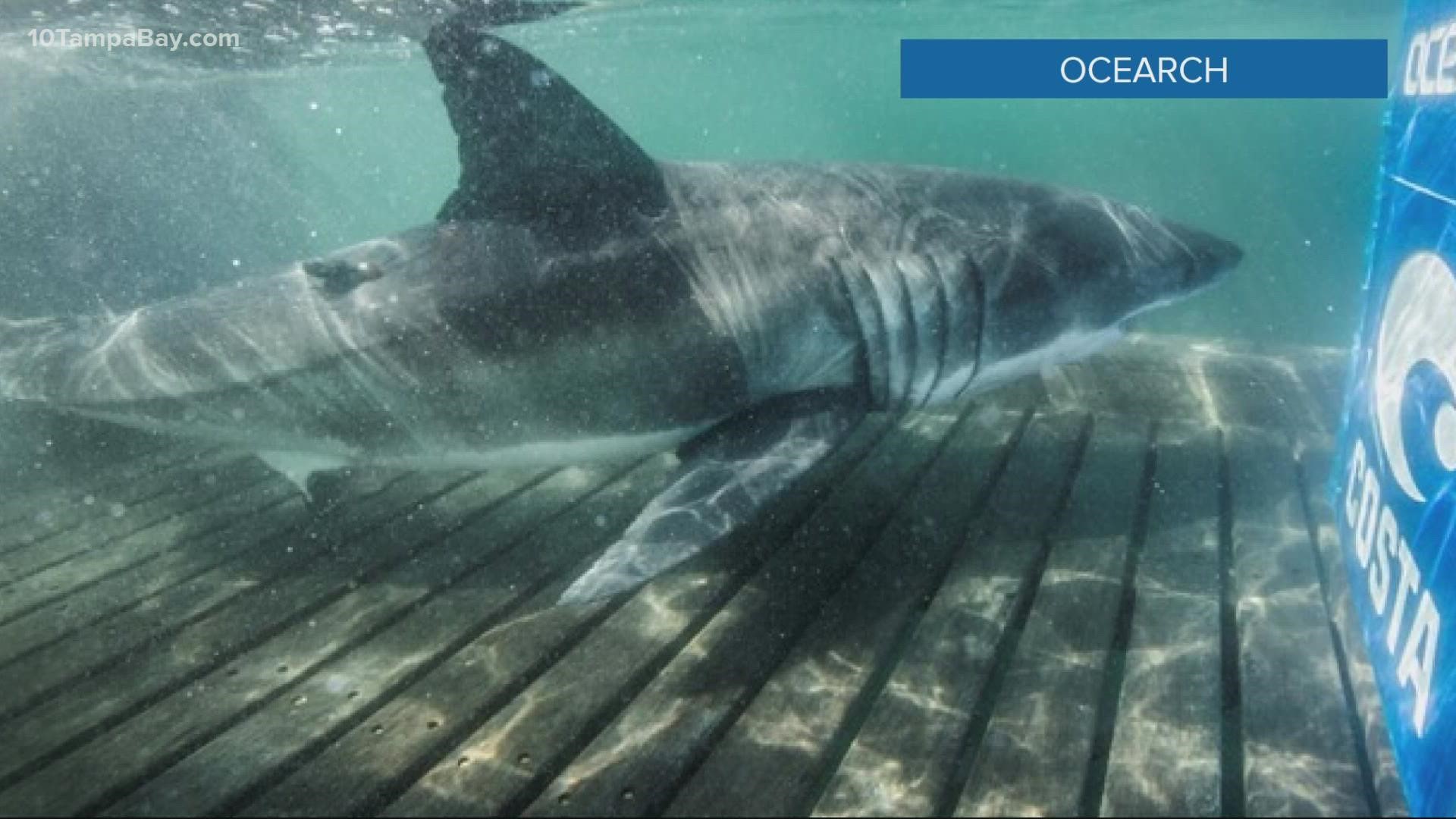ST. PETERSBURG, Fla. — One unlikely spring-breaker was trying to make her way to St. Pete over the weekend. Her name is Rose, and she's a 10-foot, 5-inch, 600-pound great white shark.
Scientists at OCEARCH pinged the shark on their tracker around 7:05 a.m. Saturday off the coast of St. Pete Beach. And on Sunday, the research organization tweeted that she was still swimming around the area.
A "ping" happens when the animal's tag breaks the surface of the water, OCEARCH explains.
OCEARCH has been tracking Rose since researchers tagged her on Expedition Nova Scotia in October 2020. The juvenile shark was named after Rose Bay, which is close to where she was found.
Since then, the shark has traveled more than 9,000 miles, including up and down the east coast of the U.S.
Rose pinged off Florida's Space Coast on Feb. 16, then made her way down the coast, through the Florida Keys, into the West Florida Escarpment and around the Tampa Bay area.
According to OCEARCH, Rose is in good company. A 12-foot-long adult great white shark named Scot pinged off the Gulf Coast within the West Florida Escarpment on March 24.
What if you see a shark?
First, keep an eye on it but leave the water quickly. This seems pretty obvious, but sometimes surfers don’t leave the water when they should because they’re used to seeing sharks.
You should only hit a shark if you’re attacked, ideally on the nose. Your response should be vigorous — sharks respect size and power, according to the International Shark Attack File.
Remember how rare shark bites are
Shark attacks are frightening, and it can be hard to calmly compare their likelihood to more common risks. But reminding yourself how incredibly rare shark bites are can give you another reason to feel less anxious about visiting the beach.
The International Wildlife Museum says your odds of being bitten by a shark are about 1 in 4 million.
10 Tampa Bay's Claire Farrow contributed to this report.

